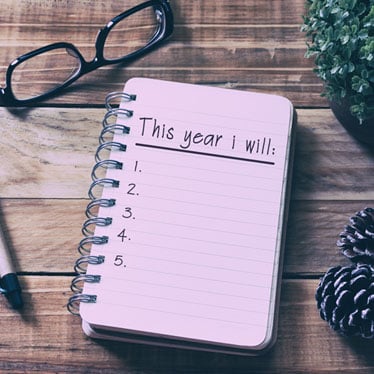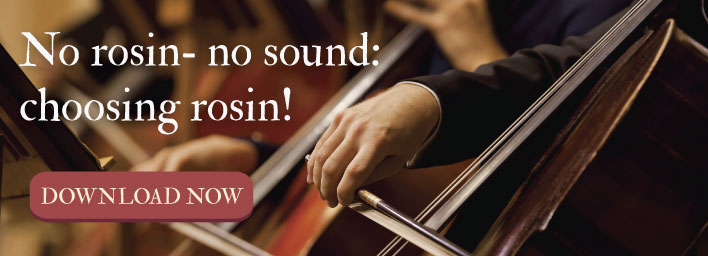4 New Year's Resolutions Every String Musician Can Keep

New Year’s always brings with it a renewed sense of purpose. We all have a fresh slate on which to inscribe new opportunity and achievement. Then February rolls around and it feels like the new year is going along in much the same way as last year.
Yet, we can keep our New Year’s resolutions. The hook is to keep the connection between the what you’re doing to the why you’re doing it ever present in your mind. This method isn’t foolproof, but it goes a long way to helping you maintain your focus and motivation.
Before jumping into the four specific New Year’s resolutions for string musicians, this post is not about how to set practical goals in your skills or professional development. Not that you should ignore this type of goal setting. You shouldn’t. You can read about how to set practice goals, how to apply for a music competition, how to put yourself out there and publicly perform, and many more quantifiable goal-oriented articles on the StringOvation blog (just use the search field).
This post takes a step back to suggest four resolutions that are fun and expand your creativity and knowledge in ways that will support any practical music goals you’ve set for yourself.
1. Actively explore other arts
Enhance your creativity and personal expressiveness by participating in other art forms. Attending concerts or visiting museums are both valuable activities. However, keeping this resolution means doing, not just observing. You might decide to interact with music in a different way by taking a dance or voice class. If you prefer to be less formal about it, just go out more often to dance or to do karaoke.
Diving into literature to deepen your artistic sensibilities. Learn more about the works that inspired other works, like Tchaikovsky’s “Manfred Symphony,” inspired by Byron’s poem “Manfred,” or Rimsky-Korsakov's “Arabian Nights.”
If you want to get really pro-active, stand up at a poetry slam or turn up the Shakespeare and learn how to speak in the lyrical style of iambic pentameter.
Exploring other art forms can create new synapses in your brain that help your expressiveness and your interpretative skills.
2. Learn the ins and outs of your instrument
Your instrument is your tool. Devote some time to learn more than just the layout and name of its parts. Understand the mechanics of how each part contributes to the sound your instrument makes. Learn how to complete basic repairs yourself. Read some classic works on the historical development of your instrument. Here’s a copy of The Bow, Its History, Manufacture and Use by Henry Saint-George (1896) to get you started. Check out a documentary showing how your instrument is made, like this one from a Spanish cello luthier.
3. Improve your ear
A musician’s ear can never be too refined. Developing a sensitive ear can transform what seems like hard work into a sort of instinctual sense for a work, which in turn improves your interpretive and improvising skills. Developing your ear is another reason to lean into practicing scales, as they’re key to staying on key. Here are some other ear training exercises.
Include a plan to protect your ears in your resolution to improve them. You don’t need to be performing at rock concerts to hurt your ears. Multiple studies have shown the ways classical musicians experience hearing loss.
4. Play more with your peers
You don’t need to wait for teachers or organizers to provide group performance opportunities. Set something up yourself. Invite some friends to create a chamber string ensemble or duet. Or, seek out musicians from other genres and put together something really crazy. Here’s a small group of string musicians (from violin to banjo to guitar to cello) performing Mozart’s “Turkish March” in a blue grass style.
Working with a small group of peers, outside a formal hierarchy, will improve your practice, your musicianship, your communication skills, and your creativity. It will open you up to receiving valuable feedback. You’ll also get to see more closely how other musicians work through their own creative process. Here’s some tips on how to get a small group started.
Do you have some New Year’ resolutions you seem to make every year? Let us know what resolutions you’ve been able to keep and which ones you struggle with in the comments below.


